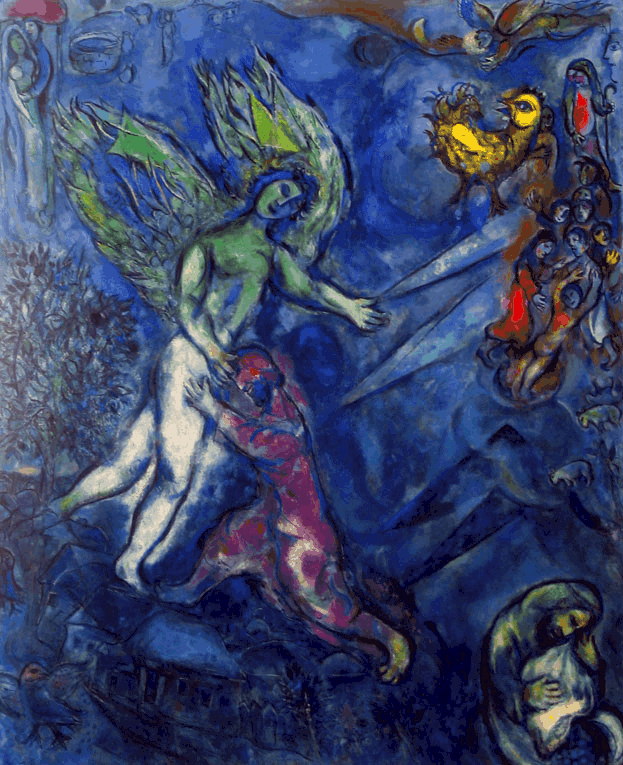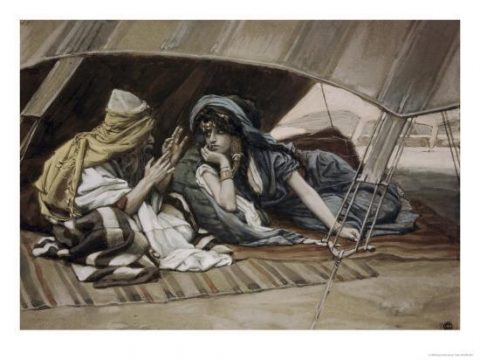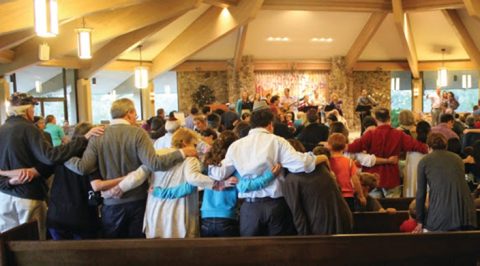Va-Yishlach Gen. 32:4-36:43 (Dec. 20/21)

As the Torah Turns
Rabbi Lader’s Weekly D’var Torah
Va-Yishlach – Gen. 32:4-36:43 (Dec. 20/21)
Our Torah portion this week is Va-Yishlach (Gen. 32:4-36:43). Rabbi Michael Zedek, of Emanuel Congregation in Chicago, offers an interesting insight… This week’s portion begins with the well-known wrestling match out of which Jacob emerges with a new name, his and our name – Israel… The Hebrew is unequivocal that Jacob was left alone, and a man wrestled with him. Was the encounter with an angel, as the Prophet Hosea suggests (Hosea 12:4), or with a person, or with his conscience? All are viable options, and the text gets even more complex and vital as it reaches a climax with Jacob receiving a new name, Yisrael – Israel, with the declaration (citing the JPS translation) “Your name shall no longer be Jacob, but Israel, for you have striven with beings divine and human and have prevailed.” The Hebrew for “El – beings divine” is in fact nothing less than one of the names for God. Additionally, “va-tuchal -and you have prevailed” may similarly be a little off as well, suggesting an element of hubris, for the Hebrew recalls a modern Hebrew “street phrase” (yachol lihiyot), which means it is possible… you are capable, competent; it’s what you do, both with God and with persons, which is your skill, capacity, duty, your role… Jacob emerges from the encounter limping, which, even as it may be description of a physical condition, also must be a metaphor for the wounds life has inflicted on him… [and, truly, on us all]. As he leaves that place, he names the location Peniel because… “I have seen God face to face and my life was preserved.” The reference or challenge, of course, to a well-known conviction that no one can behold God in full connection and survive the encounter. So… did he wrestle with God or a man? And the deep answer is yes. As supporting evidence, I refer us to the next chapter as Jacob meets and, perhaps, reconciles with his brother Esau. The text informs us that Jacob responds to Esau’s embrace with a radical insight or formula (Genesis 33:10). “… [F]or to see your face is like seeing the face of God, and you have received me favorably.” In brief, our tradition teaches that when we truly encounter, meet and connect with the other, with all others, even our adversaries, we are as close as humans may approach to seeing, embracing and being part of a divine encounter… Our encounters with each other are always potential moments to meet the sacred; every meeting may be filled with blessing. Simply put, how we deal with each other is holy work… What we do with and to each other, we do to God. Our actions bring a sacred dimension into the world, or, as we push away or discount the other, even an adversary, we are diminishing holiness, turning away from a moment to arrive at Peniel – a place, a moment where we just might meet the face of God.

From Previous Weeks

Va-Yetze Gen. 28:10-32:3 (Dec. 6/7)
“Surely God was in this place, and me, I did not know it!”

Toledot – Gen. 25:19-28:9 (Nov. 29/30)
“I am old now and I do not know the day of my death” (Bereshit 27:2)

Chayei Sarah (The life of Sarah)- Gen. 23:1-25:28,
“There is a time to mourn, and a time to accept; a time to rage against the fading of the…

Vayera – Genesis 18:1-22:24 (Nov. 8/9)
Avraham and his emerging tribe…were marked by radical inclusion. Everyone was welcome in Avraham and Sarah’s tent.
